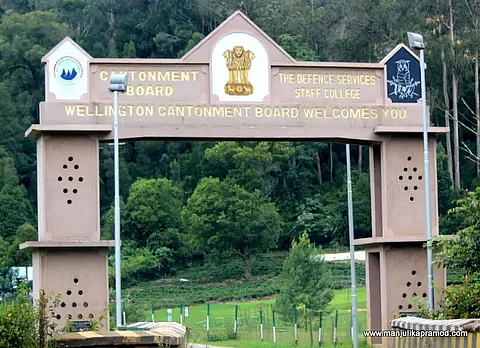
- Home
- Live Blog
- Breaking News
- Top Headlines
- Cities
- NE News
- Sentinel Media
- Sports
- Education
- Jobs

Kamal Baruah
(The writer can be reached at kamalbaruah@yahoo.com)
The British town was the Summer HQ of the the colonial Madras Gove-rnment. It's the hill station of leisure across the borders among the states of Tamil Nadu, Karnataka and Kerala. The people, especially from South India, visit the Blue Mountains to escape from the heat of the day. The fatal incident of the Indian Air Force helicopter MI-17V5 crashing over the Coonoor valley has reminded my days, where India's first Chief of Defence Staff General Bipin Rawat, his wife and 12 brave soldiers were onboard that ill-fated copter.
Social media at large started raising doubts in their minds nevertheless copter incidents do happen in aviation as it travels across the mountains and it's a mayhem task while flying over steep hills under dangerous weather hazards. There is a golden rule for copter pilots while flying in hills and during cloudy weather. "If you're in clouds, you should be out of the hills and if you're in the hills, there should be no clouds around." There were incidents of missing helicopters in the North East.
The SAR operations are even potentially fatal in the cloudy and foggy weather of Arunachal. Soldiers underwent such adventures in their combatant days, we called it an early party as low clouds usually don't fall at dawn.
The lines of choppers are hangered-in at Sulur Air Base on Sundays. We once summered during the 90s nearby the Hills in the weekend getaway that was just a couple of hours away. Nilgiri Mountain Railway built by the British at Mettupalayam is the most fascinating marvel of engineering with the Swiss Locomotive and Machine Works technology. The Edmondson style manual tickets at the boarding station reminded the legacy of the bygone era. As we occupied a solid wooden bench mounted on an iron structure inside the charming blue coloured coach, it suddenly pulled up by the coal-fired steam engine; however, it was a painstakingly slow uphill journey that winded through the scenic terrain. Surprisingly, it once went reverse before climbing up again.
At Coonoor, it almost gave us a feeling of arrival in the 19th century. It was hissing steam and smokes all over the sprawling railway dock. The miniature train was a romantic and stunning journey at the treasured hunt to witness whistling, steam-clacking on the misty track through tunnels, curves and bridges. The Blue Mountains' love and longing for the shola grassland fascinated us with Areca Nut and Jackfruit. We walked through the chilled weather and sipped hot tea in the smoky town of Ooty (Udhagamandalam). Tourists found the beautiful lake surrounded by natural flora as the most hangout destination but we had another idea for that day.
We travelled down the steep hills as Colonel Sangha's desire for Defence Services Staff College (DSSC) to experience war with wisdom at Wellington. There was a sound of drill and galloping horse echoed from the parade ground. It's the epitome of Indian military proficiency for the aspiring staff officers of all the three services - Army, Navy and Air Force as also selected officers of the paramilitary, Civil Services, and officers from friendly foreign countries.
The proud heritage at Darwar Hall could mesmerize any travellers. We thronged there to treasure a curious look of interesting avenues through Trishakti, Kalinga, Ashoka, Somnath, Arjan, Chanakya, Eklavya, Sardar Patel and Valmiki that engrossed in gleaning. The list of alumni of DSSC includes Presidents of Nigeria, Fiji and Sri Lanka.
The visiting diary is the most valuable, where the signatories of the chiefs of the Armed Forces are displayed. We read great lines of the Generals one after the other until it ended. CDS General Rawat was to deliver a lecture from the Sekhon hall and he missed to pen a few lines at Darwar Hall in his final journey. CDS was perhaps right while penning a note in the National War Memorial visitors' book on his day of relinquishing while paying tribute for the brave soldiers. The nation today salutes his supreme sacrifice for what he has done for the country proud.
The downhill train took the big curve and even skidded very often to the line descends while returning from the pristine valleys of Wellington. Passengers lose their balance by way of darkness crumbling outside. The Station Master signalled us in a colonial-style with a Bell and a Vintage Lamp. The college traces its lineage from 1905 at Devlali, Maharashtra to Quetta, Pakistan in 1907 and finally shifted back to India at Wellington after 1947.